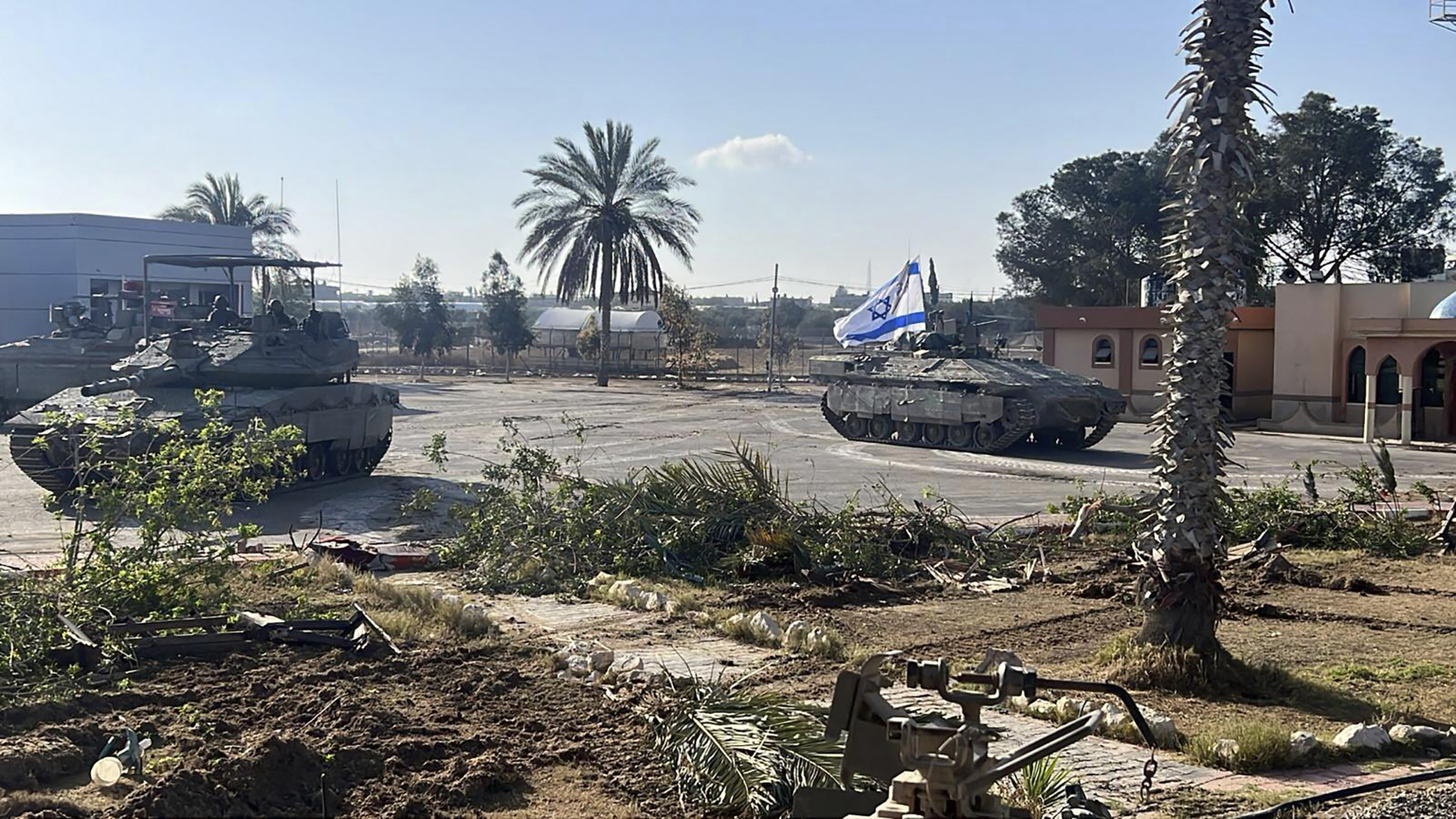GAZA STRIP, — An Israeli tank brigade seized control Tuesday of the Gaza Strip side of the Rafah border crossing with Egypt, authorities said, moving forward with an offensive in the southern city even as cease-fire negotiations with Hamas remain on a knife’s edge.
The move comes after hours of whiplash in the Israel-Hamas war, with the militant group on Monday saying it accepted an Egyptian-Qatari mediated cease-fire proposal. Israel, meanwhile, insisted the deal did not meet its core demands. The high-stakes diplomatic moves and military brinkmanship left a glimmer of hope alive — but only barely — for an accord that could bring at least a pause in the 7-month-old war that has devastated the Gaza Strip.
The Israeli 401st Brigade entered the Rafah crossing early Tuesday morning, the Israeli military said, taking “operational control” of the crucial crossing. It's the main route for aid entering the besieged enclave and exit for those able to flee into Egypt. Israel fully controls all access in and out of Gaza since the war began.
Footage released by the Israeli military showed a tank entering the crossing. Details of the video matched known features of the crossing and showed Israeli flags flying from tanks that seized the area.
The Israeli military claimed it seized the crossing after receiving intelligence it was “being used for terrorist purposes.” The military did not provide evidence to immediately support the assertion, though it alleged the area around the crossing had been used to launch a mortar attack that killed four Israeli troops and wounded others near the Kerem Shalom Crossing.
The military also said that ground troops and airstrikes targeted suspected Hamas positions in Rafah.
Wael Abu Omar, a spokesman for the Palestinian Crossings Authority, acknowledged Israeli forces had seized the crossing and had closed the facility for the time being. He said strikes had targeted the area around the crossing since Monday.
An Egyptian Foreign Ministry spokesperson declined to immediately comment on the Israeli seizure. Egypt previously has warned any seizure of Rafah could see Palestinians fleeing over the border, a scenario that could threaten a 1979 peace deal with Israel that’s been a linchpin for regional security.
The offensive again raised the risks of an all-out Israeli assault on Rafah, a move the United States strongly opposes and that aid groups warn will be disastrous for some 1.4 million Palestinians taking refuge there.
Egyptian officials said the proposal called for a cease-fire of multiple stages starting with a limited hostage release and partial Israeli troop pullbacks within Gaza. The two sides would also negotiate a “permanent calm” that would lead to a full hostage release and greater Israeli withdrawal out of the territory, they said.
Hamas sought clearer guarantees for its key demand of an end to the war and complete Israeli withdrawal in return for the release of all hostages, but it wasn’t clear if any changes were made.
Israeli leaders have repeatedly rejected that trade-off, vowing to keep up their campaign until Hamas is destroyed after its Oct. 7 attack on Israel that triggered the war.

